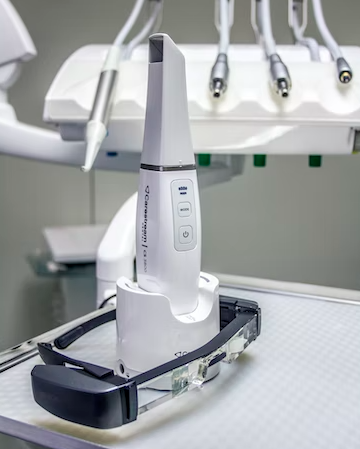Many of us will require a tooth extraction at one time or another for various different reasons. Tooth extractions are often needed when patients are experiencing overcrowding, advanced gum disease, damaged teeth, medical conditions, and deep infections that are beginning to spread.
Tooth extractions are typically considered to cause excruciating pain and discomfort, however, this is a myth and is by no means true. The pain or discomfort experienced is typically that of the cause, for example, a tooth infection.
Fortunately, tooth extractions are not as bad as you may think and are nothing to worry about. If you have some worry about an upcoming extraction, don’t panic! Keep reading to find out why tooth extraction isn’t as bad as you may think.
What is a Tooth Extraction?
Tooth extraction is the removal of a tooth for a wide variety of reasons, which include:
- A broken tooth that can’t be repaired
- Severe tooth decay
- Gum disease (periodontal disease)
- An abscess on your gums or around your teeth
- Overcrowded teeth
- Impacted wisdom teeth
Many years ago, tooth extractions were considered to cause excruciating pain. However, with dental professionals undergoing better training and using improved equipment and techniques, tooth extraction is now far more painless and shouldn’t cause you any pain. They even administer a local anaesthetic to numb the extraction site and minimise any discomfort. Yet, if you feel extremely anxious, they can even offer you sedation.
Dental extraction must only be performed by a registered dentist following a dental assessment and should never be carried out at home. Dentists have the right equipment and sterile environment in which to perform this type of procedure with the utmost care, and your recovery can be fairly quick.
Following a free consultation, your dentist will carry out an assessment and identify whether tooth extraction is necessary or whether an alternative treatment is better advised.
What Are the Benefits of a Tooth Extraction?
Protects You Against Infections Spreading
If tooth extraction is necessary due to an infected tooth, having an extraction can prevent the infection from spreading to the surrounding teeth. This means that you are also protecting your gums.
Ensures Comfort and Relieve Pain
Depending on the reason for your tooth extraction, you may already be experiencing pain or discomfort. A tooth extraction will remove the source of this discomfort, meaning that you can get on with your day to day life.
Restores Your Smile
There’s still a chance you can save your smile after having a tooth extraction with the help of restorative dentistry. It doesn’t necessarily mean that you will be suffering from tooth loss for the rest of your life! Fortunately, you still have plenty of options even after having an extraction.
Your teeth are designed to work together, so having just one missing tooth can change the shape of your face and can therefore cause other problems. With your other teeth beginning to shift when you lose an adult tooth, you are likely to experience further issues, including tooth sensitivity, tooth grinding, and difficulty chewing.
There are several different methods of regaining your smile after losing teeth, which include dental implants, dental crowns, dental bridges, and dentures.
Can Be a Great Cost Saving
If you act fast, having an extraction can save you a whole lot of hassle later on. For example, if you are suffering from a tooth infection, having the tooth extracted can prevent the infection from spreading and therefore resulting in further treatment.
What to Do After Tooth Extraction: Tooth Extraction Aftercare
After your tooth extraction, you may notice your gum bleeding slightly, although this is nothing to worry about, and we will provide you with a piece of soft padding to bite on.
If you have been given a sedative, we will ask you to take it easy and rest until the effects have worn off and may recommend painkillers and an antibacterial mouthwash to reduce the chances of an infection developing.
If necessary, we will schedule a follow-up appointment, although we will let you know if this is necessary.
When Can I Eat After a Tooth Extraction?
In the first 24 hours of your tooth extraction, you should avoid consuming anything chewy and try to stick to liquids and soft foods, such as soup, porridge or yoghurt; however, you should avoid consuming hot foods and drinks. We also advise against consuming alcohol as this can interfere with your medication and delay healing.
After 24 hours, you can continue to eat soft foods, but only if they require minimal chewing. You should avoid foods that are hot, sticky, spicy and crunchy for at least two weeks following your procedure.
Tooth Extraction in London
Our tooth extraction varies in price with the option to use 0% finance if you’d prefer to space out the payments. With a free consultation, you can be sure that a specific treatment is right for you with a detailed plan of costs and timelines.
We also provide free e-consultations consisting of a 20-minute phone call to provide you with advice and recommendations suited to your budget and lifestyle. If it is an emergency, contact us here.
Regardless of the reason for extraction, whether it be tooth decay, gum disease or an injury, we would be more than happy to discuss treatment options with you.
- GERD and Your Teeth: Why you should see a dentist urgently - November 24, 2024
- When a broken tooth is considered a dental emergency - November 24, 2024
- How to prevent tooth decay in children - July 9, 2024




